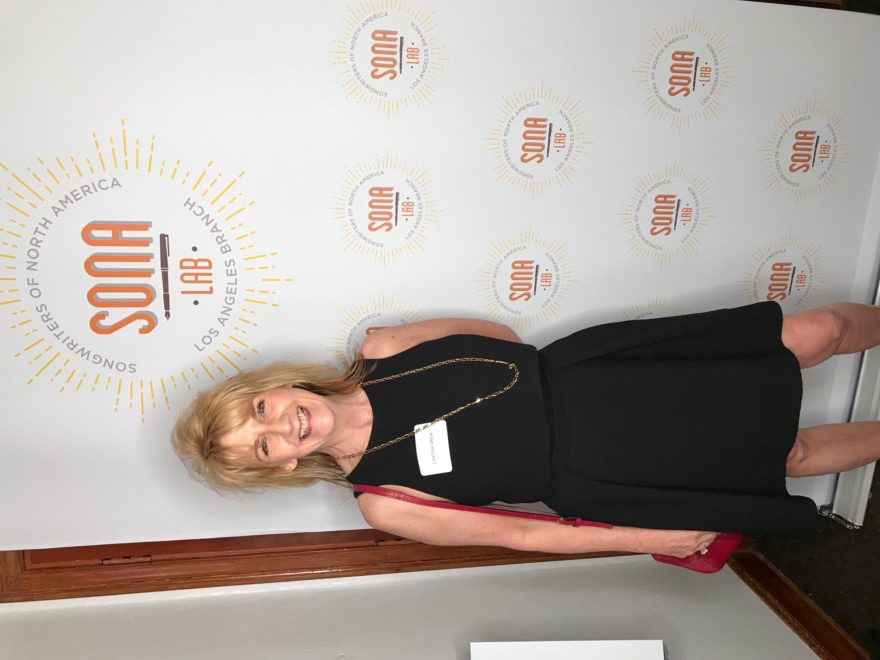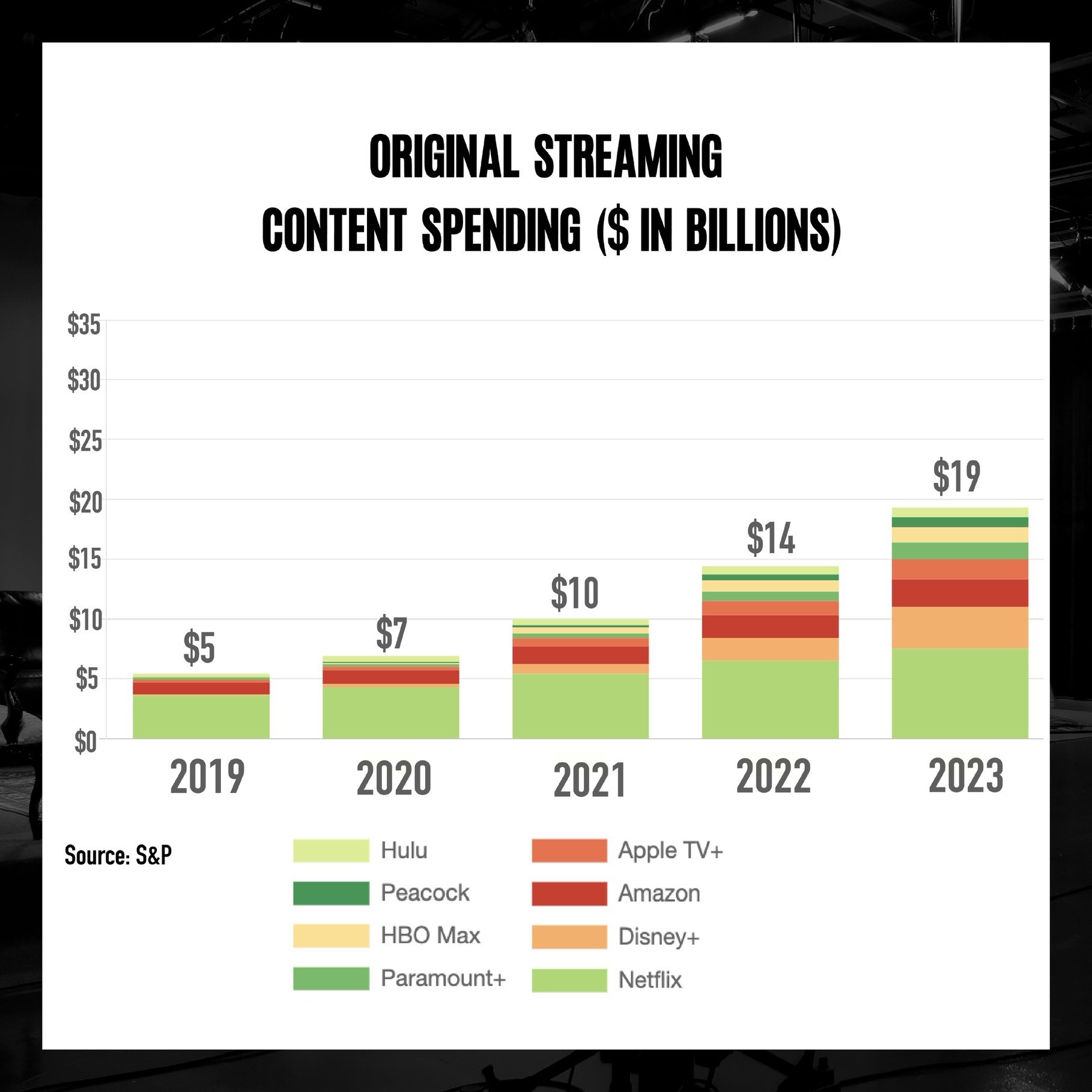On Thursday October 11, 2018, President Trump signed into law The Music Modernization Act (MMA), a 184 page bill, groundbreaking as the most important piece of U.S. Copyright legislation in a generation, and groundbreaking in the manner it all came together, with unanimous bipartisan support on Capitol Hill.
The MMA will ensure that songwriters earn a more meaningful share of the U.S. digital streaming revenue pot, $5.7 billion in 2017, and projected to rise to $34 billion by 2030. Why is this important? Without songwriters, there is no music! In the United States, revenues from digital streaming music made up 75% of total recorded music revenue in the first half of 2018. Pre MMA, the U.S. songwriter has struggled to survive in the digital streaming era where the recording artist (the face of the music you know), earned 13 times more in royalties on digital streaming, than did the songwriters who wrote the songs. That model was not sustainable and put the $18 billion U.S. Music Industry ($10 billion live + $8 billion recorded) at risk. Songwriter royalties are heavily regulated by the U.S. government and U.S. Copyright Law had not kept pace with the digital revolution in music delivery. The wheels are now in motion. At the 2017 Copyright rate hearings, the U.S. Copyright Royalty Board (CRB) instituted a 43% rate increase, for the streaming mechanical royalty from 10.5% to 15%, to be phased in over a five year period, and eliminated the total content cost (TCC) cap.
What exactly does the MMA provide? Broadly, the MMA updates the music licensing process for digital streaming music, that will result in greater compensation for songwriters, a more efficient and lower cost rights clearance process for Digital Service Providers (DSPs) like Spotify and Apple Music, a defined royalty for producers and engineers, and a royalty to artists and record labels for pre-1972 sound recordings played on digital and satellite radio. Specifically, please note the following negotiated provisions.
- No more NOIs. Today DSPs are permitted to send an unlimited number of Notice of Intents (NOIs) to the U.S. Copyright Office, for any song they wish to play, in which they do not have complete and accurate songwriter information. This means the songwriter does not get paid. And yes those royalties have accumulated in the bank accounts of the DSPs and is estimated to total around $1 billion. There will be a mechanism for songwriters to claim these monies.
- Performance Rights Organizations (PROs) ASCAP and BMI will no longer be limited to the same two rate court judges to determine royalties. The MMA provides that these rate hearings will be assigned randomly to any federal judge, thereby eliminating the opportunity for DSPs and other licensees to “game the system”.
- Rate courts will now be able to consider all market evidence, including sound recording royalties, when setting rates for public performances of musical works.
- The MMA creates an independent licensing collective, which will have the power to make sure royalties are distributed fairly and timely. Further, songwriters are obligated under the law to receive at least 50% of all royalties for unmatched works.
- The MMA officially provides for a streaming mechanical royalty, in addition to a public performance royalty to songwriters for music played by the DSPs. Recently the DSPs were taking the position in litigation, that they are not required to pay a streaming mechanical royalty. This is now the law and the DSPs will never be able to argue that point again.
- The MMA provides for the very first time, an Audit right. The new licensing entity will have the right to audit the DSPs to ensure proper reporting and payment of royalties. Copyright owners will have the right to audit the licensing entity.
- Mechanical royalty rates, currently set using an outdated four-part formula (801(b), resulting in below market rates, will now be based on a willing buyer / willing seller approach.
- All costs for the licensing entity will be paid by the DSPs, eliminating commissions and resulting in higher payments to songwriters. In return, DSPs that obtain a blanket license from the Mechanical Licensing Collective (MLC), and comply with licensing requirements, will be exempt from liability of statutory damages for copyright infringement.
- Songwriters will have positions on the three Boards governing the operation of the licensing entity.
- Self-published songwriters will have 4 out of 14 seats on the Board of Directors of the MLC.
- Songwriters will have 5 of 10 seats of an Advisory Committee overseeing the unclaimed royalties process.
- Songwriters will have 3 of 6 seats of a Dispute Resolution Committee to resolve disputes of musical works ownership and royalty distribution.
The United States music market is the largest in the world, representing 33% of the global music market in 2016. Further, according to U.S. Economist Stephen Siwek, the music industry contributed $143 billion annually in value to the U.S. economy in 2016, at a compound annual growth rate (CAGR) of 10.2% between 2012 and 2016, compared to a 3.6% CAGR for total U.S. GDP.
The stakes were high. The music industry professionals that brought the MMA to fruition understood this, including veteran music industry attorney Dina LaPolt CEO LaPolt Law and Counsel to Songwriters of North America (SONA), SONA members and founding Board Directors Michelle Lewis, Kay Hanley, and Shelly Peiken, National Music Publishers Association (NMPA) Legal Counsel Danielle Aguirre, Covington & Burling Counsel and former General Counsel U.S. Copyright Office Jacqueline Charlesworth, Co-President Azoff MSG Entertainment Susan Genco, Nashville Songwriters Association International (NSAI), The Writer Is, and many more including music industry professionals, songwriters, recording stars, music activists, and music advocacy organizations. I am proud to report that women were at the forefront of this legislation. Billboard Women in Music Executives Of The year 2018
In addition to the favorable economic impact this legislation will have, this bill illustrates the power of collective individual action, creativity, determination, and compromise. It sets the stage for a new way of governing and problem solving in business in America! Business School programs should be taking note and adding this case study to their curriculums. The money flows affected by the Music Modernization Act touch multiple parties with competing interests, songwriters and publishers, Performance Rights Organizations (PROs) ASCAP, BMI, SESAC, and GMR, DSPs like Spotify and Apple Music, The Digital Medial Association (DIMA), and Mechanical Licensing firms like The Harry Fox Agency (HFA), and satellite radio provider Sirius XM. In the past three years, there were many meetings with each of these industry stakeholders to negotiate a solution to which each party would agree. To be clear, each party had to give something away to get something that benefited them. All of this work was done before drafting the legislation. In this manner, the legislators would be more inclined to begin the legislation process, with all parties in agreement.
The Music Modernization Act opened in the U.S. House of Representatives on December 21, 2017. The bill sailed through the U.S. House in April 2018, then moved on to the U.S. Senate, passing unanimously in the Senate Judiciary Committee in June 2018. This is when it encountered two major challenges that threatened to derail the passing of this much needed and landmark legislation. The first challenge came in July, from private equity firm The Blackstone Group, owner of PRO SESAC, who is the owner of mechanical licensing firm HFA. Prior to the MMA being passed, HFA administered most of the streaming mechanical royalties in the U.S. The original premise of the MMA was to have one mechanical licensing collective to administer all applicable royalties. Blackstone wanted HFA to compete with the collective. The songwriting community held its ground and organized an army of activists, from little known supporters to major players in the industry. Once again, determination, imagination, and compromise prevailed! It was agreed that the mechanical licensing collective would administer the blanket compulsory mechanical license, and can compete with firms like HFA to administer any direct deals for synch, performance, and lyric licensing. This works because the spirit of the MMA is to protect the most vulnerable, which is the songwriter under the compulsory mechanical royalty. More on the compromise reached here.
The second challenge came in September 2018 from Liberty Media who owns Sirius XM satellite radio. Under current copyright law, satellite radio and digital webcast providers do not have to pay a sound recording royalty for pre-1972 sound recordings. Under the MMA, they will be required to do so. The music community once again rose up! Ultimately a compromise was reached, wherein the royalty rates Sirius XM must pay, currently 15.5% for post 1972 recordings, are frozen until 2027. Additionally, Sirius will pay pre-1972 royalties equally (50/50) to recording artists and labels.
The success of these two major challenges that threatened the passage of this bill, is a testament to the collective power of the little guy taking on powerful corporate interest! More on the negotiations reached here.
The process of creating the Mechanical Licensing Collective and seating the Board and committee members is now under way. If you’re a songwriter, or a supporter of songwriters, and you’re not yet a member of SONA, I encourage you to join! SONA Membership It’s a formidable organization!
Onward and upward !! There’s no stopping us now!


